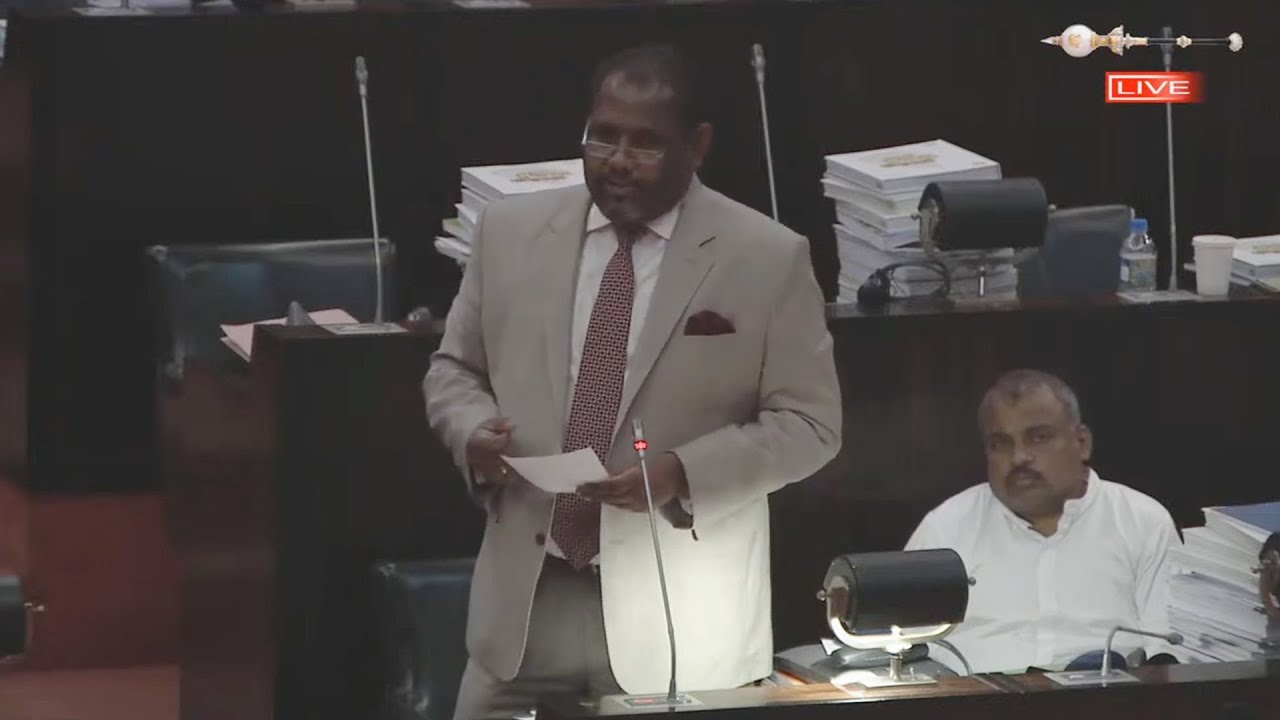
In a speech delivered in the Sri Lankan Parliament, Gajendrakumar Ponnambalam, a member of the Tamil National People's Front (TNPF), strongly criticized the government's decision to call for nominations before March 21, arguing that it would disenfranchise smaller parties, particularly his own. He emphasized that the fundamental principle of democracy is not about adhering strictly to timelines, but ensuring the maximum enfranchisement of the people.
Ponnambalam began his address by clarifying that his party, despite opposing some aspects of the bill, was in support of its passage. The contentious section of the bill, according to Ponnambalam, allows the Election Commission to determine a date for calling nominations no later than three months from the date the bill is enacted. This means, if the bill passes today, nominations could be called within three months, a timeline Ponnambalam described as problematic for smaller parties.
As the only representative from his party in Parliament, Ponnambalam voiced his concerns about the impracticality of participating in the nomination process while also fulfilling his responsibilities as a member of Parliament. “I cannot contribute to the debates if I am forced to be away from Parliament, running around to collect nomination signatures,” he said, describing the logistical burden placed on single-member parties like his. He requested that the government reconsider the timing of the nomination process, urging that it not begin before the end of the budget debate, which finishes on March 21.
He also referenced the Supreme Court's earlier ruling, which emphasized the importance of holding elections without unnecessary delays. The TNPF leader pointed out that while the Court had stressed the need for timely elections, the government had sought an additional three months, which he found to be excessive. He noted that this delay had the potential to undermine the effectiveness and credibility of the election process.
Importantly, Ponnambalam stressed that his request was not unreasonable or aimed at extending the election timetable. Instead, he argued that it was simply a matter of ensuring that all parties had a fair opportunity to engage in both parliamentary and electoral duties. By proposing a slight delay in the nomination process, he hoped to avoid the disenfranchisement of smaller parties and to uphold the democratic principle that all political actors should have the ability to participate in the political process meaningfully.
Further elaborating on the party’s commitment to democratic principles, Ponnambalam recalled the stance of his party during the previous parliament. His party had been one of the few that refused to meet with then-Prime Minister Ranil Wickremesinghe due to a belief that he lacked a legitimate mandate. Ponnambalam’s party had consistently called for elections, believing that the current Parliament did not have the people’s mandate, and he reiterated that his party was committed to the idea of legitimacy and fair representation.
Ponnambalam urged the government to seriously consider the practical difficulties faced by smaller parties in managing both their parliamentary and electoral responsibilities. He appealed for the government to approach the Election Commission with a reasonable request to postpone nominations until after March 21. Failure to do so, he warned, would effectively disenfranchise smaller parties, undermining the democratic process.
